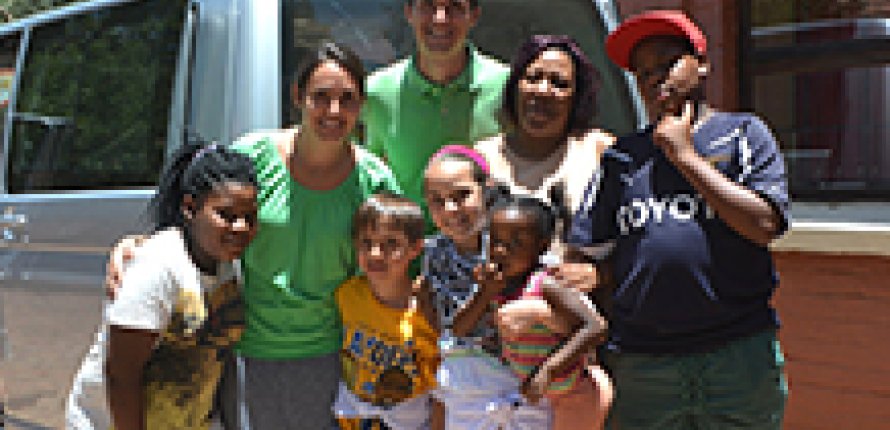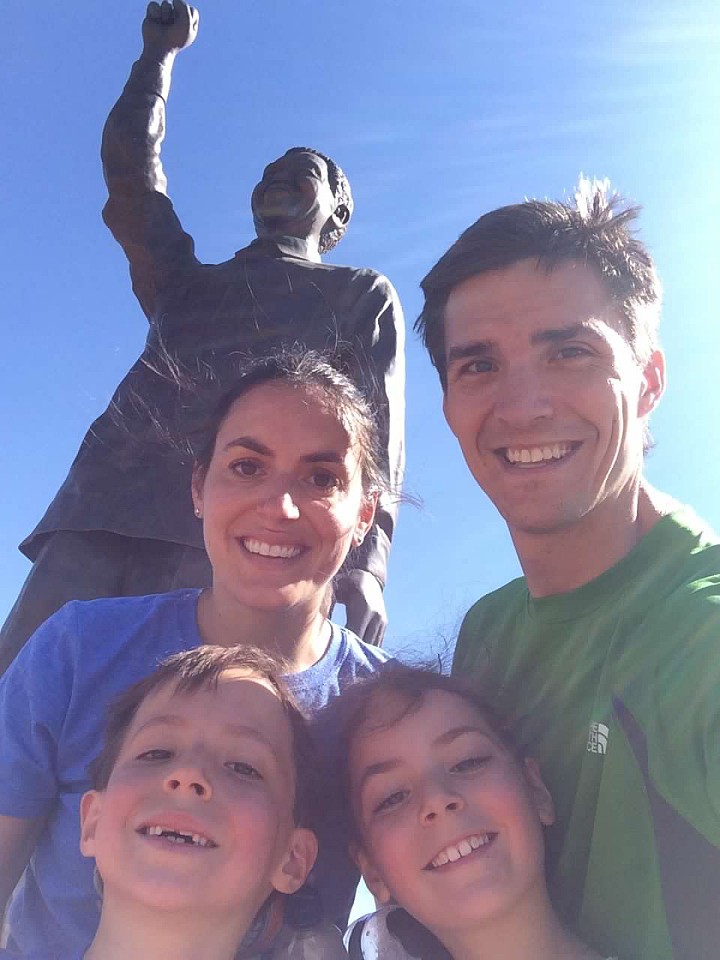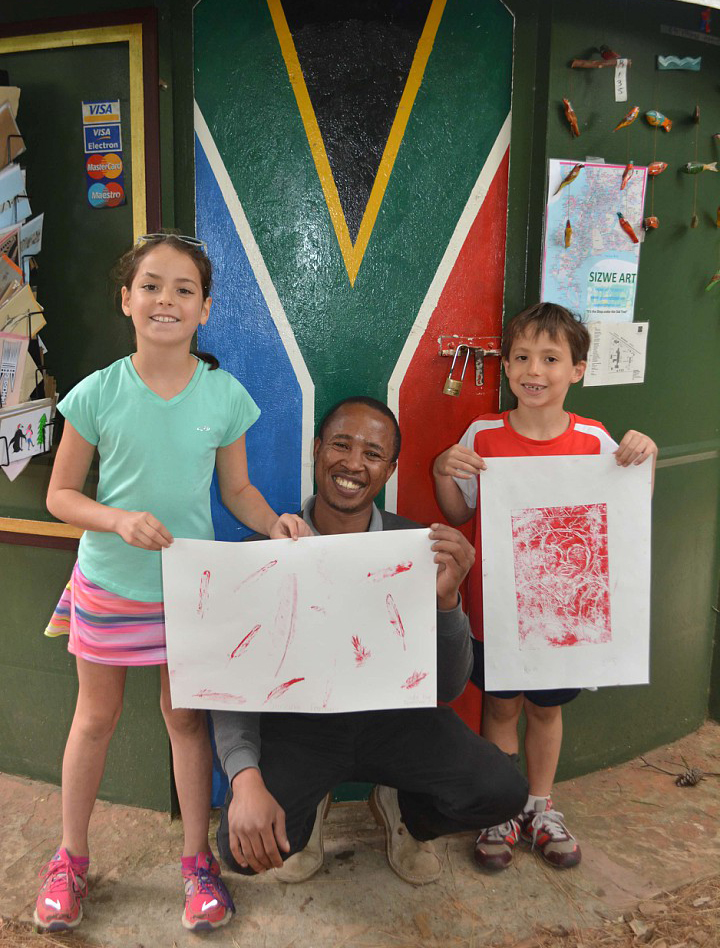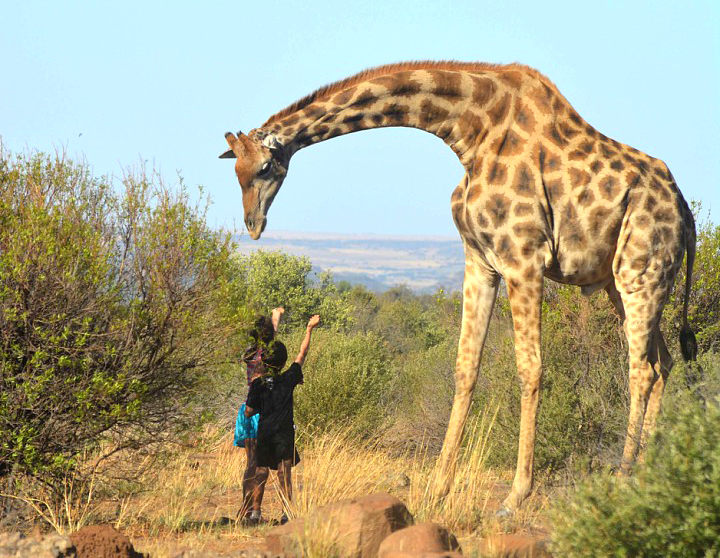Creating Cultural Connections as a Fulbright Family

Daniel Kiel, Associate Professor of Law at the University of Memphis
2015-2016 Core Fulbright U.S. Scholar to South Africa
“Will they even have Goldfish?” I wondered in exasperation. This came during one of those moments when I was questioning the wisdom of having applied to move myself and my family across the world to South Africa.
I was speaking about those cheesy snack crackers in the shape of goldfish, the ubiquitous snack that virtually every parent and American child is familiar with as the answer to many an on-the-run food emergency. It had been several months since I learned of our Fulbright award and what had once seemed an exhilarating opportunity to break out of our comfort zone was now being bogged down by the endless pragmatic questions involved in uprooting a family to a foreign place. In that moment of parental need, when I needed a snack to get hungry and potentially grumpy kids through the next hour, would there be Goldfish in South Africa?

When I applied for my Fulbright to South Africa, I never considered going without my wife and young children. My daughter was nine and my son was six when I applied, and exposing them to a world beyond our neighborhood was a significant part of why I hoped to go abroad. Yet, as our departure date approached, I recognized that bringing my children added a layer of responsibility. Not only would I be charged with integrating into a foreign university in an unfamiliar place, researching education law and policy in a vastly different system, I would also continue to be a parent 24 hours a day, 7 days a week, just like I was at home. Bringing my family was going to make life as a Fulbrighter more complicated, but I ultimately realized that it was also going to make our experience infinitely more valuable.
For the six months of our Fulbright experience in a small South African town, my family grew in ways I never could have imagined. Each of us was pushed outside of our comfort zone as we immersed ourselves in new experiences with new friends. While abroad, my wife and I were able to open up conversations about race, history, and justice that had seemed forced back home. Our discussions about South Africa’s historical and modern inequities enabled us to raise questions about our own community and to helped my family examine our own place in an imperfect world.
In addition, we went through the challenge of navigating new waters and growing together. My children spent more time with one another than they ever had before and my wife and I watched their relationship deepen. As my wife and I homeschooled our children in South Africa, we were able to get to know them better as learners and as people. Although we were a close family before we left for South Africa, we returned even more connected to each other. Indeed, it was a difficult transition back into our more individualized lives at home.

While the experience was immeasurably fulfilling for us, bringing my family also added to the Fulbright mission of cultural exchange. While abroad, my kids made connections with South African children and they become miniature ambassadors to their peers. They spent time with the children of colleagues at various South African braais (which are similar to American BBQs) we were invited to, playing together and making fast friendships despite some language barriers. In addition, they participated in programming around town, such as art classes or events at museums. Even a relaxing trip to the beach once turned into a moment of cultural connection as an American accent was often enough of a reason for South African children to strike up a conversation.
In addition, my children each introduced their American friends back home to a totally different community. Both of my kids Skyped with their classes in the States and blogged about their experiences, sharing their lives in South Africa with their peers at home. Although I cannot yet know the way in which our time abroad will impact them, my hope is that this will stand out in their memories as an experience that helped shape who they will become in the future.
I can report that there are no Goldfish in South Africa. There are, however, small, cheesy penguin-shaped crackers that do the trick just fine. Now thinking back to those moments of uncertainty, it is hard to imagine how much we would have lost by allowing our practical worries to stand in the way of this opportunity.
From a parent’s perspective, sharing my Fulbright experience with my family was invaluable. You might ask, what about my kids’ perspective? I have asked my daughter to share her own thoughts below, including whether she prefers Goldfish or penguins.
When I found out that we were going to live in South Africa for five months, my first thought was, “YAY!!!!” My second thought was, “Do we have to leave our dog?” Now that I was thinking about it, there were some things to worry about. Would we be able to communicate with people? Where would my younger brother and I go to school? What would we eat? Would we be eaten by wild animals?
When we arrived in South Africa, I was surprised (and a little bit disappointed) to see that we would not be living in a tiny hut with a thatched roof in the middle of the African savannah. Instead, we rented a cottage that looked a lot like a house you might see while just driving to school or work. So, we were right at home in our little South African cottage.
Then, on the second night there, the lights suddenly went out. It was loadshedding, which meant that the power went off everywhere in the city. Each city had to take turns turning the power off to save electricity. We were in for our first big surprise of living in a different country.

Another big surprise for me was that the animals don’t just wander around the streets, going wherever they please. You have to go to certain parks to see the wild animals. So when we had to go out of town so that my dad could go to a meeting, we decided to stop on the way at Addo Elephant National Park. Safaris quickly became my favorite part of being in South Africa, especially when we encountered animals close up.
So, you see, a lot of things in South Africa were different from America. However, some things were actually pretty similar. We all noticed that our town in South Africa was a lot like our hometown of Memphis. And surprisingly, lots of people could speak English! We didn’t have much trouble communicating and making lots of new friends.
Whenever you take a new adventure, like going out of the country, there’s a chance that it won’t work out, that it will be terrible. But there’s also a chance that it will work out and will be amazing. When you take the risk and go on a new adventure, you might find that you have so many amazing experiences that you never would have had if you had stayed at home worrying that it might not work out. We had such a great experience that by the time our 5 months were up, we were begging to stay for longer!
And as for the cheese penguins snack, I liked it more than Goldfish at first, but I was ready for Goldfish again by the time we got home.
